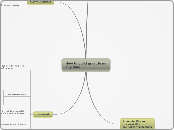por Paweł Badeński 16 anos atrás
433
How to build great teams any time

por Paweł Badeński 16 anos atrás
433

Mais informações
Carrot and sticks won't work
Any team will perform to the levelof the person who cares the leastabout what the team is doing
Being in it together
Achieved through dialogue
Confront
Confronting ourselves is one of our least favoritethings in the world we want to do
The first thing to confront is to get off of that
the reason is we like to think we have a pretty good grip on reality right now
we avoid it like the plague
What am I not seeing that I could see
What I can learn and improve
Awareness
Study your life when you are in each of state
Islands
You are architect of your own life
Take ownership!
We have to say "no" to all of above internal anserws
Obligation
If we do things out of obligationwe do them barely to pass
Our performance in this state is no betterthan in previous states
We design our relationships around it
"Have to" - "Don't want to"
Shame
We are all humans
It's not resourceful learning status
Internal cause
Justify
We can refuse to accept this answerand move to the next island
The smarter you are the better stories you make up
External cause
That's just the way it is
That's the way it is around here
Blame
You can get stucked on it or you can get off of it
You cannot do anything about the problemassuming the cause is somewhere else
Blame is genetic mechanism(research confirmed that !)
Process launches you to the next islandif you get off of one
First reaction is lay blame"Who did it to me?"
Different for each one of us
Explains value add in relationships
Costs virtually nothing